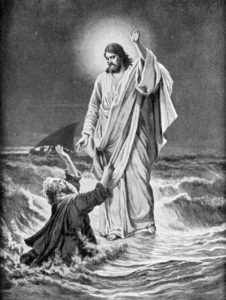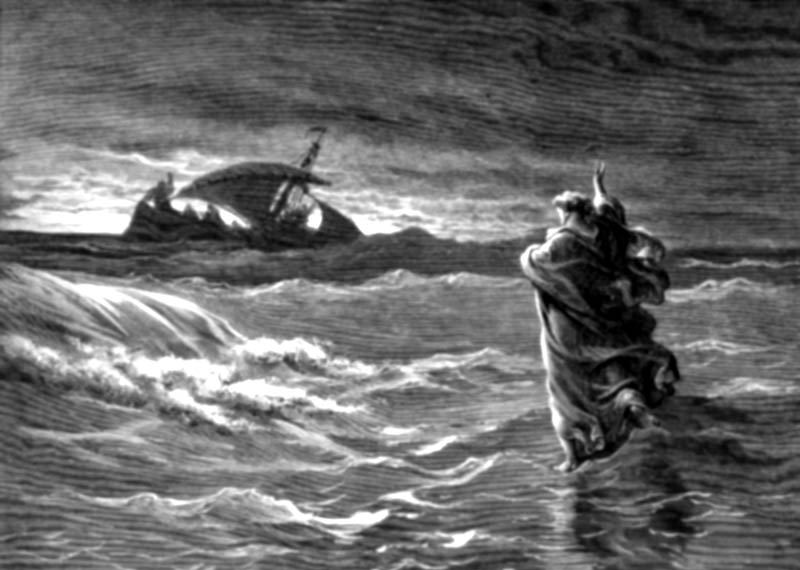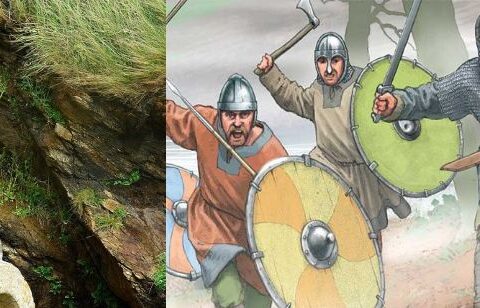But he cured his own frostbite miraculously…
Rare conditions could have conspired to create hard-to-see ice on the Sea of Galilee that a person could have walked on back when Jesus is said to have walked on water, a scientist said today.
The study, which examines a combination of favorable water and environmental conditions, proposes that Jesus could have walked on an isolated patch of floating ice on what is now known as Lake Kinneret in northern Israel…
“We simply explain that unique freezing processes probably happened in that region only a handful of times during the last 12,000 years,” said Doron Nof, a Florida State University Professor of Oceanography. “We leave to others the question of whether or not our research explains the biblical account.”
Naturalistic explanations for biblical miracles are always amusing, if for no other reason than that they illustrate how far a mind will go to ignore the facts that might dash a pet theory against the cliffs of reality.

For example, if by “the biblical account” we mean “Jesus walked on water,” then sure: walking on ice would qualify and we’re left wondering only why the evangelists were impressed enough by the feat to bother recording it.
But if by “the biblical account” we mean, “The disciples left by boat while Jesus stayed behind to pray, then caught up to them in the middle of a stormy lake by walking on the water while they fought against the wind, then Peter got out of the boat and stood briefly on the water but then sank and then Jesus chewed him out for being faithless,” then the ice thing explains but the tiniest part while making the whole rest of the account rubbish. If there’s enough ice for Jesus to walk across, how are they rowing? If Peter is just sinking in some ice, why is Jesus exasperated over his lack of faith? If the whole episode was just a big Jewish game of pie tag on a frozen lake, why were the disciples so amazed by the whole ordeal that they worshiped Jesus as the son of God?
In order to accept this scientific explanation, we have to simultaneously believe the characters in the story were idiots who couldn’t tell ice from water even when they were rowing over it or standing on it or sinking in it. Naturalistic explanations always lead inexorably to similar conclusions, while at the same time picking and choosing the facts with which they want to deal and then relying on long odds in the end to make the scheme ‘work’ anyway.
It’s probably more scientific to conclude that Jesus was a mutant chrisbala cherepo basilisk or an enormous aquatic insect. Scientists know those can walk on water, after all.
We, on the other hand, have a God of miracles.










5